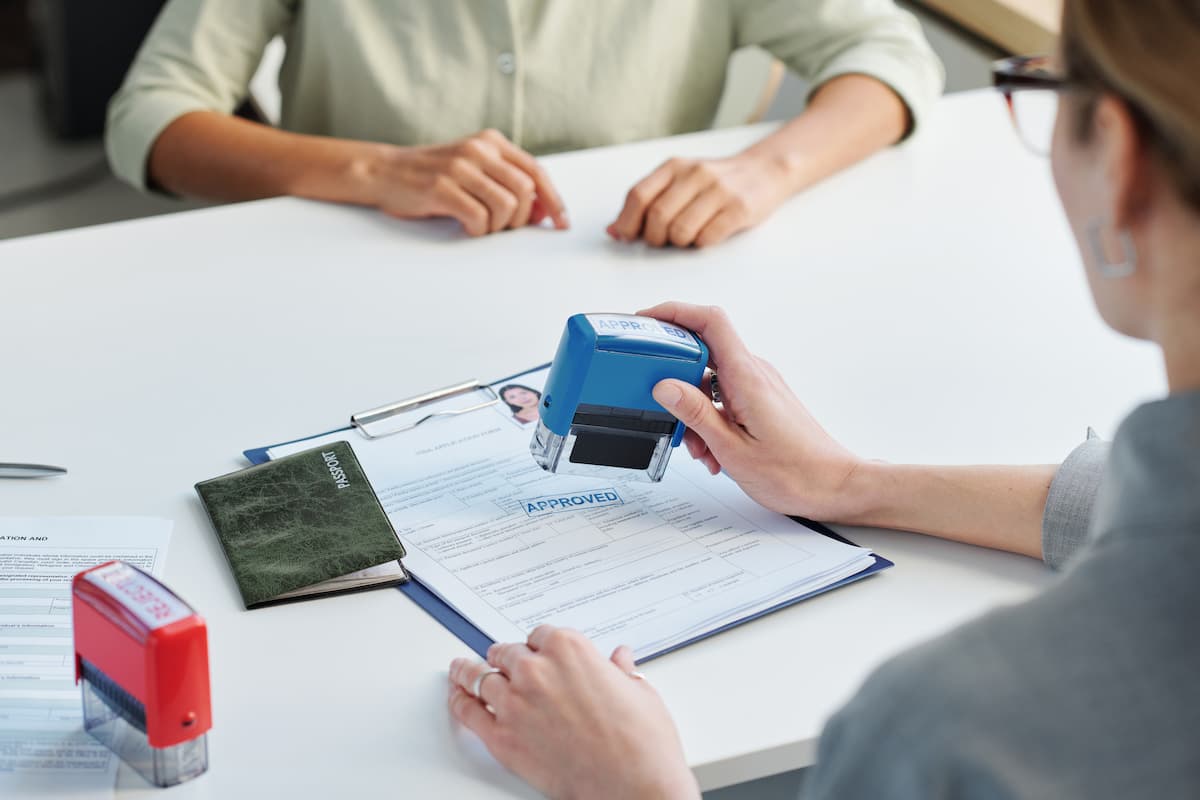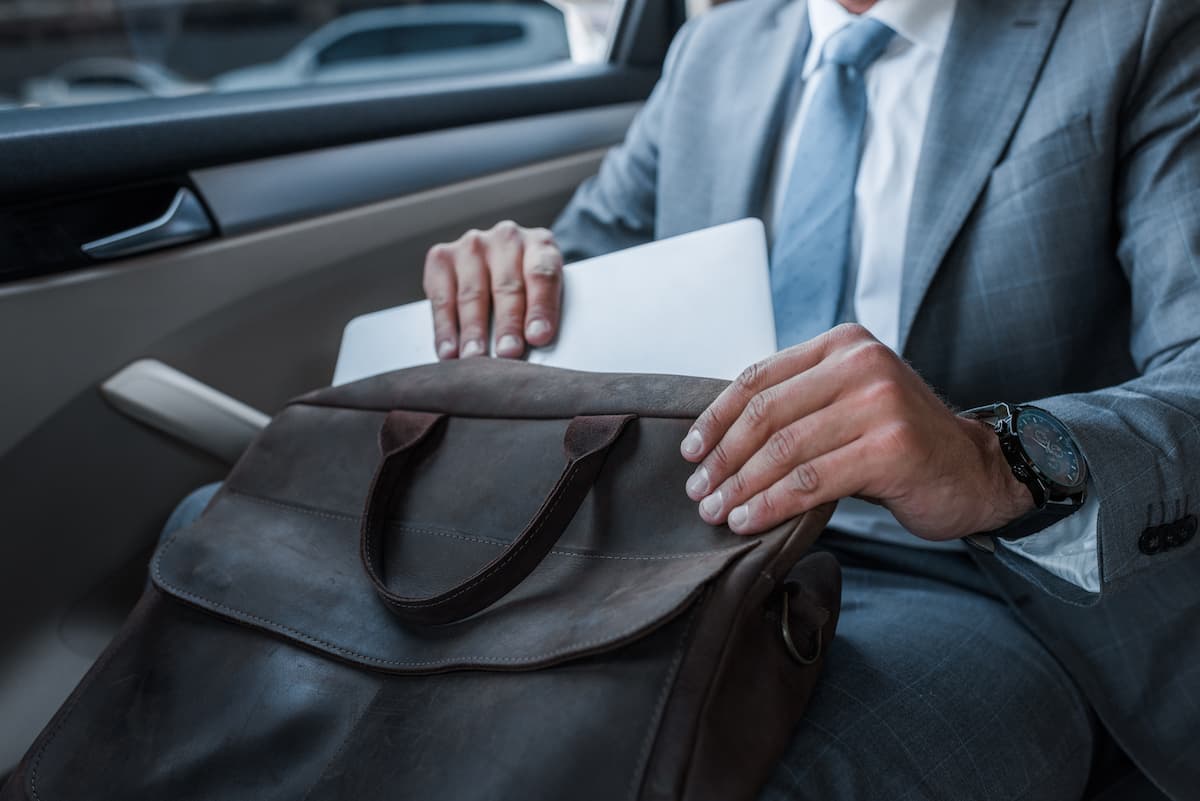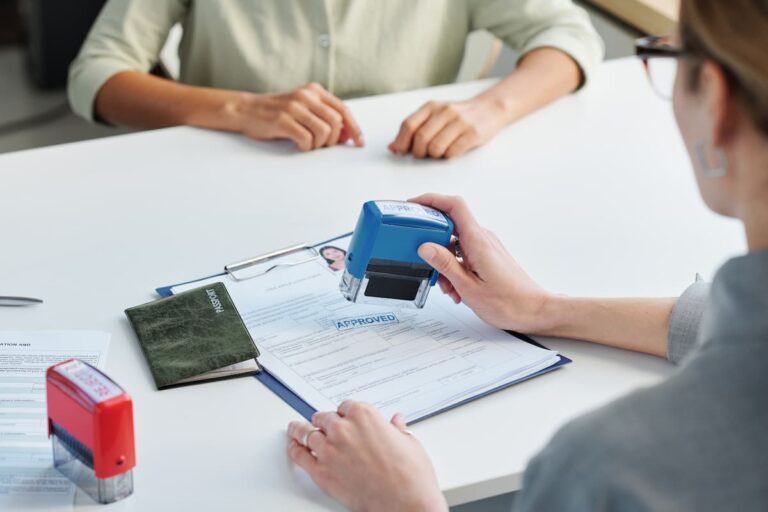Renewing your driver’s license can seem like a daunting task, but being well-prepared can make the process smoother and quicker. This guide will walk you through the essential items you need to bring to ensure your license renewal goes without a hitch. From identification documents to proof of residency, we’ll cover all the bases to get you ready for your visit to the DMV.
Identification Documents
Primary Identification
One of the most crucial things you’ll need is a valid form of primary identification. This typically includes your current driver’s license, passport, or birth certificate. These documents must be original or certified copies.
Secondary Identification
In some cases, you may also need to provide secondary identification. This can include a social security card, marriage certificate, or a recent utility bill. It’s essential to check your local DMV’s requirements as they can vary from state to state.
Proof of Residency
Renewing a driver’s license in your state requires proof of residency, which is a way for the Department of Motor Vehicles (DMV) to verify that you currently live within the state boundaries. This requirement helps ensure that all drivers on the road are properly documented and meet the state’s regulatory standards. Here’s a more detailed look at the types of documents you can use to prove your residency and why they are necessary:
- Utility Bills: These include bills for services such as electricity, water, gas, or telephone. To be acceptable, these bills should be recent—usually dated within the last two months. They must have your name and current address printed on them. The idea is that if a utility company sends you a bill, you likely reside at the address listed.
- Lease Agreements: A lease agreement is a contract between a landlord and tenant where the tenant agrees to rent residential property. This document proves residency because it establishes a tenant’s address and typically includes the duration of their stay, ensuring it aligns with the period of license renewal.
- Mortgage Statements: Homeowners can use their mortgage statements as proof of residency. These statements provide details about the mortgage loan and include the homeowner’s name and property address, confirming that the homeowner resides at that address.
Each of these documents serves as a reliable indicator of residency because they are typically issued by credible organizations (like banks, government bodies, or large companies) and are difficult to forge without significant legal repercussions. It is important to check with your local DMV for specific requirements as some states might accept additional documents or have different regulations regarding the proof of residency for driver’s license renewal.

Social Security Number
Most DMV offices will require proof of your social security number. You can bring your social security card, a W-2 form, or a pay stub with your SSN on it.
Current License
Don’t forget to bring your current driver’s license. It serves as both identification and proof that you are legally updating a previously granted license.
Vision Test Requirement
Many states require a vision test as part of the license renewal process. Be prepared to undergo this simple test, and if you wear glasses or contacts, make sure to have them with you.
Application Form
Speed up your visit by filling out the renewal application form ahead of time. You can usually download this form from your state’s DMV website.
Fee Payment
Renewing your driver’s license at the Department of Motor Vehicles (DMV) comes with a required fee, which varies depending on your state or country. This fee covers the administrative costs of processing your renewal and updating your driver’s license. It’s important to be aware of not only the fee amount but also the acceptable payment methods, which can vary widely. Let’s discuss the general payment methods and then explore the renewal fees and payment methods in ten common countries around the world:
General Payment Methods
Most DMVs accept a variety of payment methods to accommodate different preferences:
- Cash: Often accepted at most locations, but not always advisable to carry in large amounts.
- Credit Cards: Widely accepted and convenient, though sometimes subject to small processing fees.
- Checks: Accepted in many places, but usually require identification and can lead to delays if there are issues with bank clearance.
Renewal Fees and Payment Methods in 10 Common Countries
1. United States
– Fee: Typically ranges from $20 to $60, depending on the state.
– Payment Methods: Credit cards, checks, cash, and sometimes online payment options through state DMV websites.
2. Canada
– Fee: Approximately CAD 90 to CAD 120.
– Payment Methods: Credit cards, debit cards, cash, and checks.
3. United Kingdom
– Fee: About £14 to £17 for online renewal, slightly higher if done by post.
– Payment Methods: Credit or debit card, direct debit for online transactions.
4. Australia
– Fee: Varies by state, approximately AUD 80 to AUD 200.
– Payment Methods: Credit cards, debit cards, BPAY (online bank transfer), and cash at some locations.
5. Germany
– Fee: Typically around €24 to €43.
– Payment Methods: Girocard, cash, and sometimes credit cards.
6. France
– Fee: Usually around €25.
– Payment Methods: Cheques, cash, and credit cards.
7. Japan
– Fee: Approximately ¥2000 to ¥4000.
– Payment Methods: Cash is predominantly used, though some places might accept credit cards.
8. India
– Fee: Generally between ₹200 to ₹500.
– Payment Methods: Cash, credit cards, debit cards, and digital wallets.
9. Brazil
– Fee: Typically R$140 to R$200.
– Payment Methods: Boleto Bancário (bank slip), cash, and credit cards.
10. South Africa
– Fee: About ZAR 250 to ZAR 300.
– Payment Methods: Cash, debit cards, and credit cards.
Knowing these details can help ensure a smooth and successful renewal process without any surprises regarding payment.

Special Considerations
If you are a senior or have a restricted license, there may be additional requirements or paperwork to complete.
Pre-renewal Checklist
Before visiting the Department of Motor Vehicles (DMV) to renew your driver’s license, it’s crucial to prepare adequately to ensure the process goes smoothly and efficiently. A pre-renewal checklist can help you organize and ensure that you have everything you need for a successful visit. Here’s a detailed breakdown of what to include in your checklist:
| Item Description | Details | Notes |
|---|---|---|
| Proof of Identity | Bring at least one government-issued photo ID (e.g., passport, previous driver’s license). | Verify that IDs are not expired. |
| Proof of Residency | Typically requires two documents such as utility bills or lease agreements dated within the last two months. | Make sure documents have your current address. |
| Proof of Social Security Number (SSN) | SSN card, W-2 form, or pay stub with your SSN on it. | Ensure the document is legible and accurate. |
| Completed Application Form | Pre-fill the renewal application form available from the DMV’s website or at their office. | Double-check all entered information for accuracy. |
| Vision Test Results | Some states require a vision test for renewal. Check if you need to bring a certificate from an optometrist. | Required only in some states. |
| Payment for Renewal Fee | Confirm the amount and acceptable payment methods (cash, credit card, check). | Prepare exact change if paying by cash, and ensure your check is correctly filled out. |
| Appointment Confirmation | If required, bring proof of appointment (printout or digital). | Check email or DMV account for confirmation details. |
| Additional Forms | Some cases require additional paperwork (e.g., name change document, medical clearance forms). | Specific to your situation—check DMV guidelines. |
Additional Tips
- Check for Updated Requirements: Always visit your state’s DMV website before your appointment to check for any changes in the documentation requirements or renewal process.
- Early Preparation: Gather all documents well in advance to avoid last-minute rushes, which can lead to mistakes or forgetting essential items.
- Digital Copies: Where permitted, keep digital copies of your documents on your phone or in an email, in case you need backup.
- Confirm Office Hours and Locations: Verify the location and working hours of your DMV office, especially if there have been recent changes due to public health considerations or other factors.
This checklist and these tips will help ensure that you have all the necessary items for your DMV visit, making your license renewal process as smooth as possible.
What to Expect at the DMV
Expect to wait, and be patient. The process can take some time, especially during busy hours.
Online Renewal Options
Online renewal of driver’s licenses is increasingly popular around the world as it offers convenience and efficiency, reducing the need for in-person visits to crowded DMV offices. Below are links to the official websites for online driver’s license renewal for ten countries. These links will take you directly to the relevant pages where you can check eligibility, understand the requirements, and proceed with your renewal if applicable.
1. United States (specific to California, as an example):
– [California DMV Online Services]
2. Canada (specific to Ontario):
– [Service Ontario Driver’s License Renewal]
3. United Kingdom:
– [Gov.uk Renew Driving Licence]
4. Australia (specific to New South Wales):
– [Service NSW Driver Licence Renewal]
5. Germany:
– Unfortunately, Germany does not currently offer online renewals for driver’s licenses; you must visit your local residents’ registration office (Bürgeramt).
6. France:
– [ANTS – Renew Driver’s License]
7. Japan:
– Online renewals are not available in Japan; you need to visit a Driver’s License Center in person.
8. India:
– [Parivahan Sewa Online Services]
9. Brazil:
– [Detran Online Services]
10. South Africa:
– [Online Renewal of Driver’s Licence Card]
These links should guide you through the process specific to each region. Before proceeding, always check that you meet all the criteria for online renewal, as certain conditions such as needing a new photo or passing a vision test may require you to visit an office in person.

Common Mistakes to Avoid
When preparing for a trip to the DMV, whether for renewing your driver’s license or any other service, avoiding common mistakes can save you time and frustration. Here are ten frequent errors that you should be aware of:
- Not Checking Document Expiry Dates: Ensure that all identification documents, like passports and previous driver’s licenses, are not expired. Many people forget to check the expiry dates and bring along outdated documents.
- Incorrect or Incomplete Forms: Filling out DMV forms incorrectly or not completing them fully is a common issue. Double-check that all information is correct and complete before submission.
- Forgetting Proof of Residency: Many forget to bring documents proving their current address. Typical proofs include recent utility bills, lease agreements, or mortgage statements.
- Overlooking Vision Test Requirements: Some states require a recent vision test for license renewals. Not having the required vision test documents can result in an additional trip to the DMV.
- Lack of Appointment: Failing to make an appointment (if required) can result in long waiting times. Some DMV offices operate strictly by appointment due to high demand or health protocols.
- Bringing Photocopies Instead of Original Documents: Many DMV transactions require original documents rather than photocopies. Check the requirements beforehand and bring originals where necessary.
- Not Having the Correct Fee: Not knowing the exact fee or not having the correct payment form (e.g., cash, credit card, check) can be a barrier. Verify the fees and accepted payment methods on the DMV website before you go.
- Using Outdated Information: DMV requirements and procedures can change. Relying on outdated information when preparing your documents can lead to errors. Always check the most current information on the official DMV website.
- Ignoring Eligibility for Online Services: Many routine tasks can now be completed online. Not checking whether your transaction can be handled online may result in an unnecessary trip to the DMV.
- Failing to Bring Necessary Supporting Documents: For certain transactions like name changes or address updates, additional supporting documents are required. Not bringing these can delay the processing of your request.
By being mindful of these common mistakes, you can ensure a smoother and quicker experience at the DMV. Always prepare in advance and review the specific requirements laid out by your local DMV office to avoid these pitfalls.
After Renewal
Once you’ve renewed your license, you’ll typically receive a temporary license on the spot, with your new license arriving by mail.
Conclusion
Renewing your driver’s license doesn’t have to be a hassle. With the right preparation, you can ensure that your renewal process is as smooth as possible. Follow this guide, and you’ll walk out of the DMV with your renewed license in no time!
Tips for Drivers
Here are some expanded tips for drivers preparing for a visit to the DMV or handling related transactions:
Check Specific Requirements and Fees
– Stay Updated: DMV requirements, including documentation and eligibility criteria, can vary significantly between different regions and over time. Regularly checking the official DMV website ensures that you have the most current information.
– Understand Fees: Different services at the DMV come with different fees. For instance, renewing a driver’s license might cost differently than registering a new vehicle. Check these details beforehand to avoid surprises.
Plan Payment Methods in Advance
– Know Your Options: Before you go to the DMV, find out which payment methods are accepted. While most offices accept cash, credit cards, and checks, some might also accept mobile payments or have online payment options.
– Budget Appropriately: If you’re dealing with transactions involving larger sums, such as title transfers or registration fees for a new vehicle, plan how you will handle these payments securely and efficiently. Sometimes using a credit card can offer additional security and record-keeping benefits.
Understand Additional Costs
– Be Aware of Extra Charges: Additional fees can apply under certain circumstances, such as late renewals or bounced checks. Knowing these potential extra costs can help you budget more accurately and avoid financial penalties.
– Processing Fees: Some payment methods, especially credit cards, might incur processing fees. Sometimes these fees are a flat rate; other times, they’re a percentage of the transaction. Check if such fees apply to your payment choice and consider if there’s a more cost-effective method.
Additional Practical Tips
– Documentation Double-Check: Have all your necessary documents organized and double-checked the night before your DMV visit. Create a checklist based on the official DMV requirements page and tick off each item as you prepare it.
– Appointment Scheduling: If your local DMV requires or allows appointments, take advantage of this option to save time. Appointments can often be scheduled online and will specify a window for your visit, reducing waiting times.
– Digital Options: For many common tasks like renewing a driver’s license or updating registration details, check if you can complete them online. Online services can save you a trip and are typically available 24/7, providing more flexibility than in-person visits.
– Customer Service: If in doubt, don’t hesitate to call or email your local DMV office. Customer service
Now, let’s address some frequently asked questions:
1. What if I forget a document?
– You will likely have to return with the necessary document, so it’s best to double-check before you go.
2. Can I renew my license before the expiration date?
– Yes, most states allow you to renew your license up to a year before it expires.
3. What if my name has changed since my last renewal?
– You will need to provide legal documentation of the name change, such as a marriage certificate or court order.
4. Is there a penalty for renewing my license after it expires?
– Yes, there can be late fees, and you might have to retake driving tests.
5. Can I still drive while waiting for my new license?
– Generally, yes, you can use your temporary license until your permanent one arrives.
Outline:
1. Introduction
– Importance of being prepared for license renewal
– Brief overview of common requirements
2. Identification Documents
– Primary Identification
– Examples of valid primary IDs
– Secondary Identification
– Examples of valid secondary IDs
3. Proof of Residency
– What qualifies as proof of residency
– Examples of documents to bring
4. Social Security Number
– Why it’s needed
– What documents to bring
5. Current License
– The necessity of your existing license
6. Vision Test Requirement
– Explanation of testing process
– Preparing for the vision test
7. Application Form
– Benefits of pre-filling the form
– Where to find the form
8. Fee Payment
– Accepted methods of payment
– Typical costs associated with renewal
9. Special Considerations
– For seniors
– For individuals with restricted or conditional licenses
10. Pre-renewal Checklist
– A final checklist before heading out
11. What to Expect at the DMV
– Typical procedures and wait times
12. Online Renewal Options
– Eligibility for online renewal
– How to prepare for an online renewal
13. Common Mistakes to Avoid
– Examples of errors and how to avoid them
14. After Renewal
– What to do post-renewal
– When to expect your new license)
15. Conclusion
– Recap of the key points
– Encouragement for a smooth renewal process



